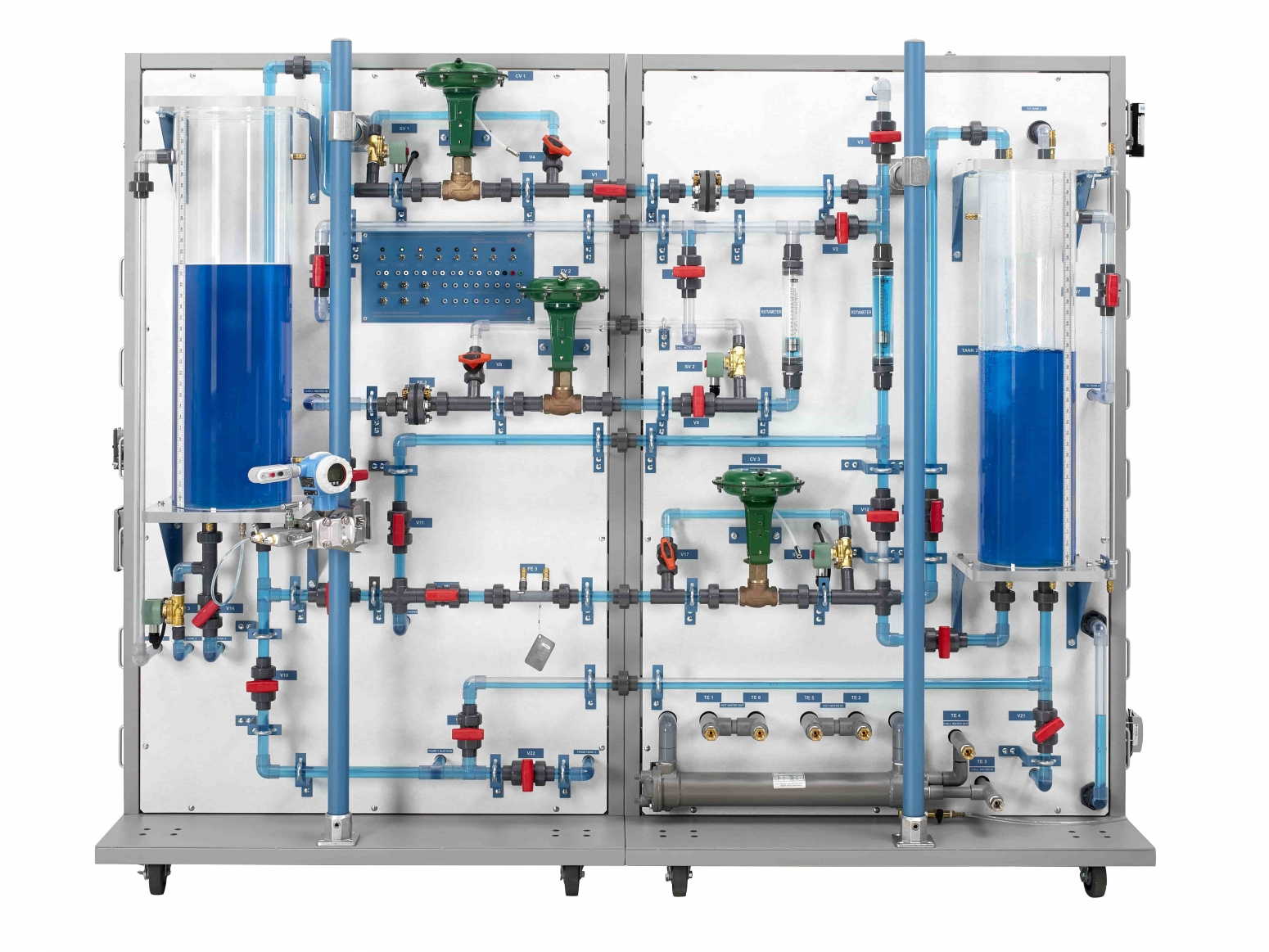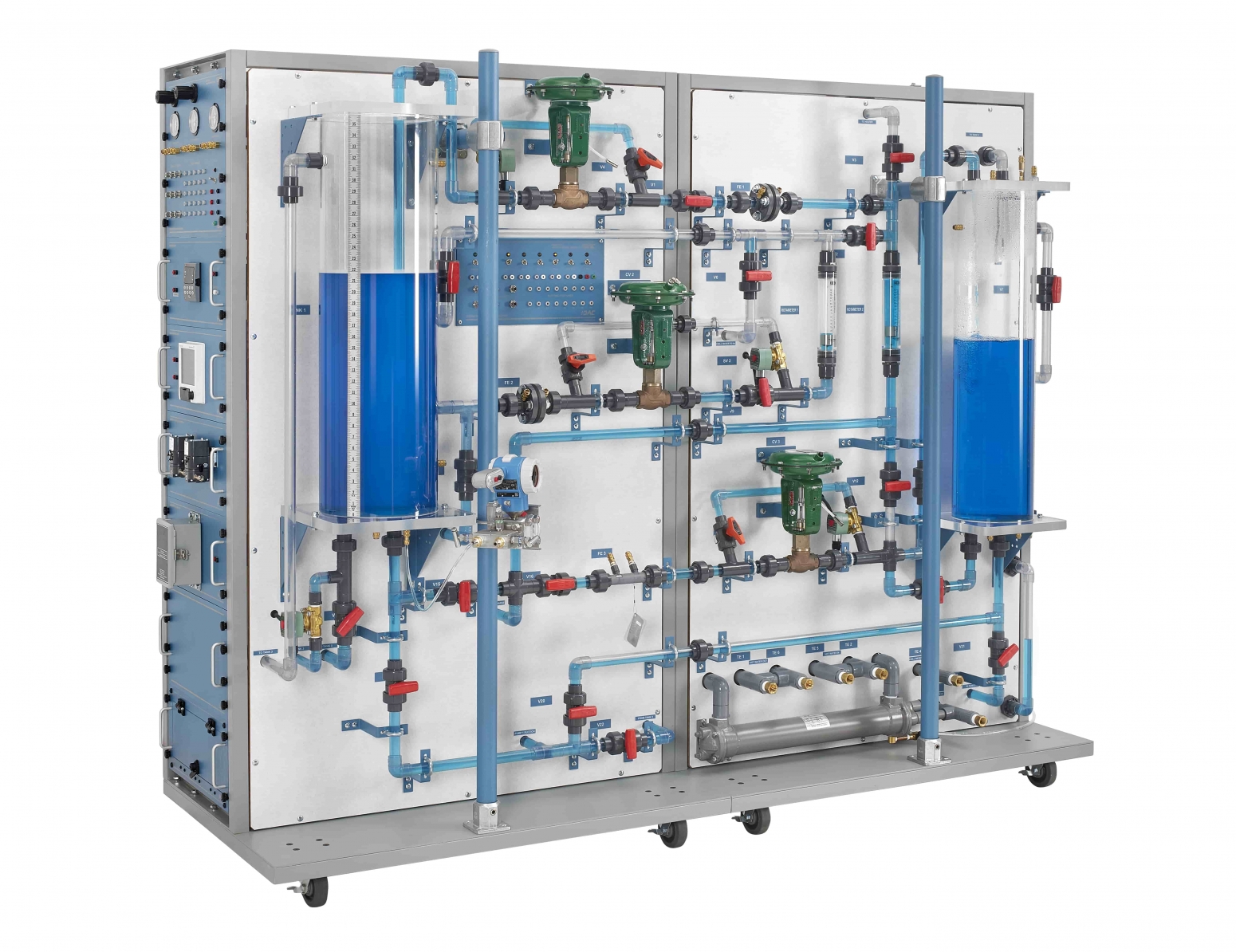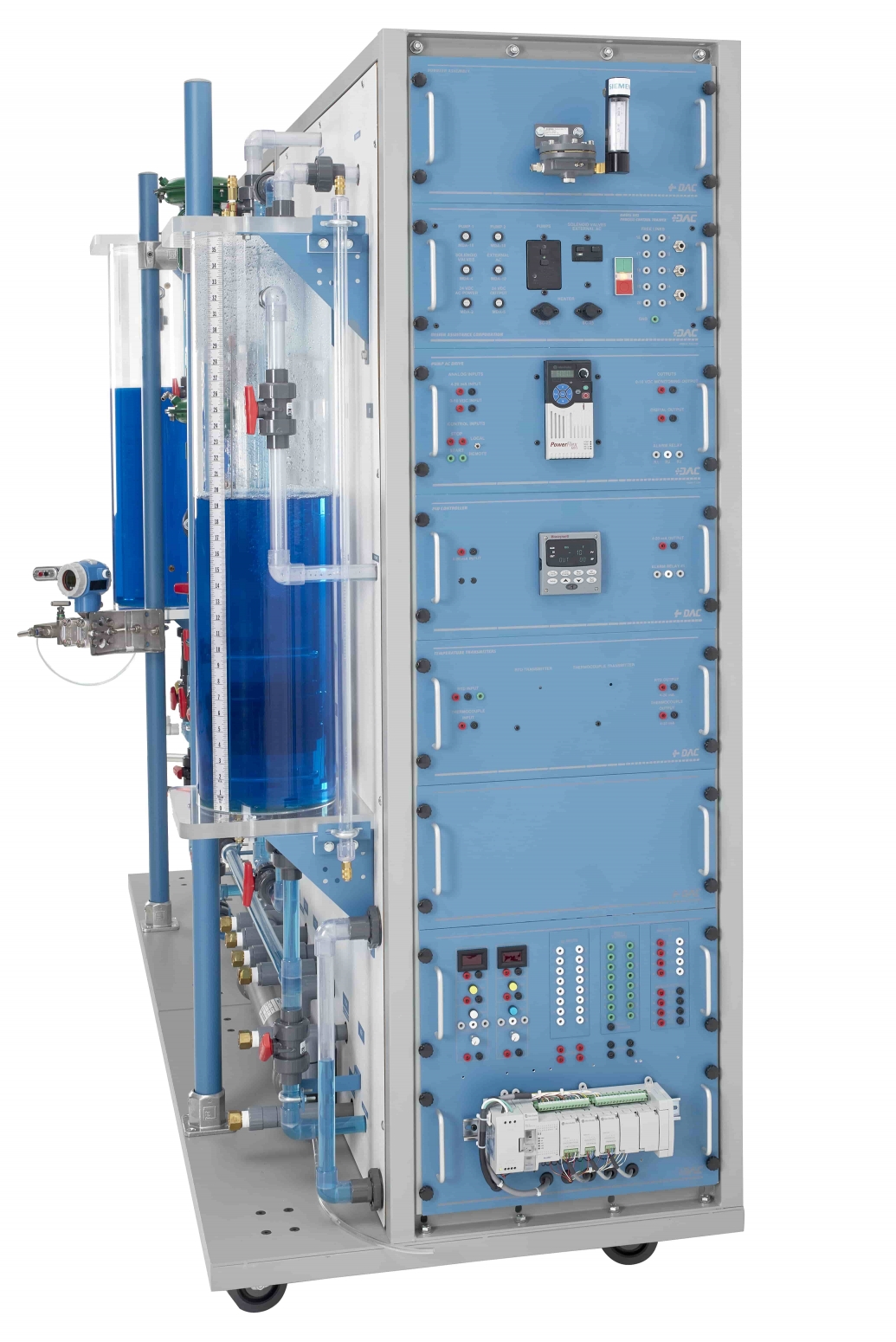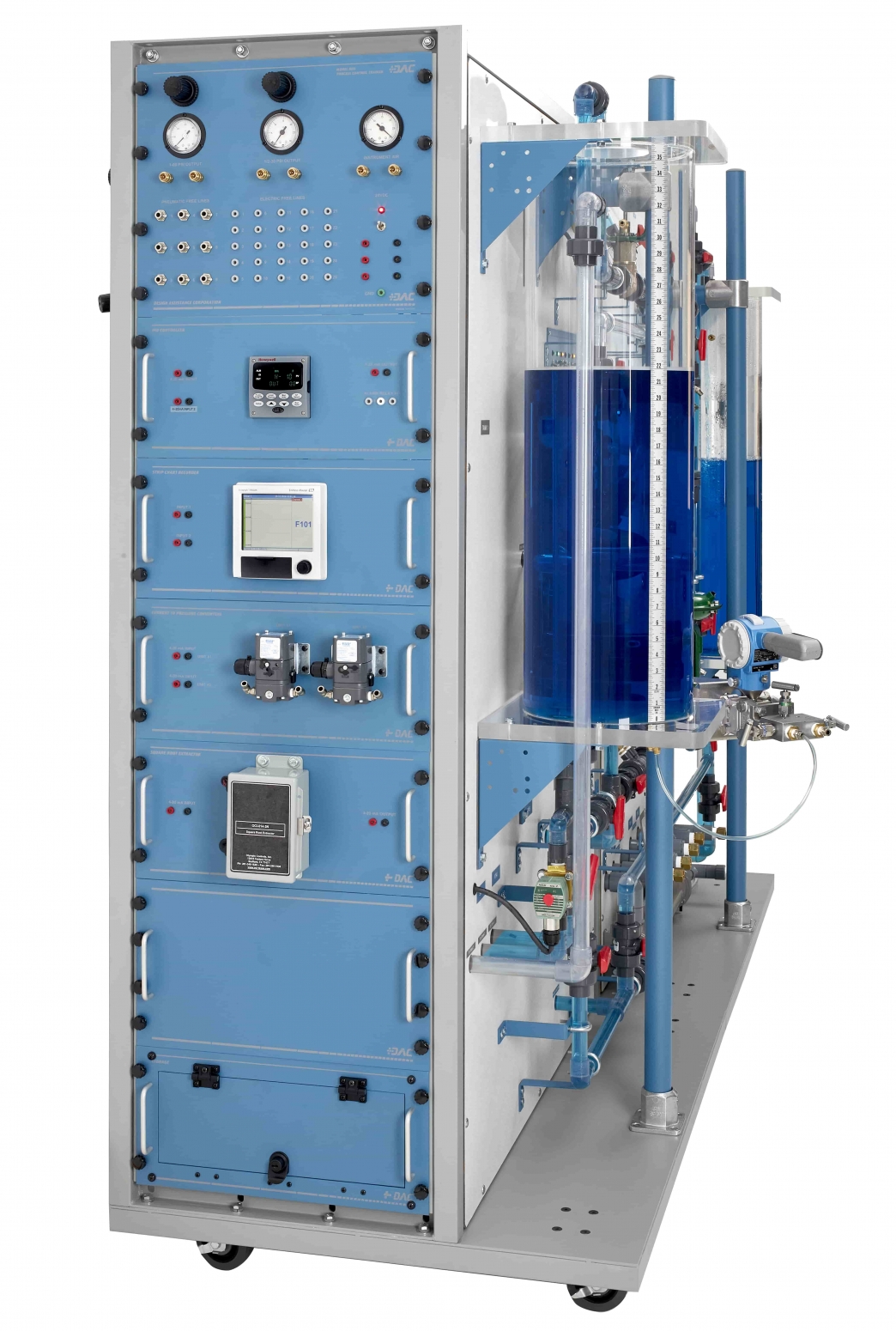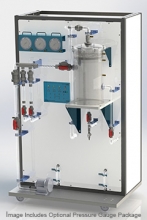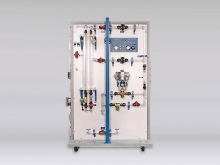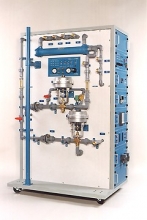4-Variable Advanced Process Control Training System
Process control systems maintain precise control of liquid and gas variables, such as liquid level, flow rate, pressure, temperature, and pH level. These multifaceted systems are a critical part of major industries like power generation, refineries, petrochemicals, chemical manufacturing, pharmaceuticals, biotechnology, and food processing and bottling.
DAC Worldwide’s 4-Variable Advanced Process Control Training System (603-000) is a fully functional, industrial-quality fluid process system that provides hands-on training in the measurement and control of four of the most common process variables: level, pressure, temperature, and flow. Learners using the trainer can create simple to advanced process loops using industrial-grade components and instruments they’ll find in the workplace.
The 4-Variable Advanced Process Control Training System can be used to establish realistic and dynamic cascade, feed-forward, feedback, split range, ratio, and three-element control loops. Compatible with a wide range of instruments and controls, the trainer also allows for convenient controller tuning and transmitter calibration.
Clear PVC piping allows learners to visually monitor process changes based on control parameters or intentional disturbances inserted using solenoid valves in combination with metered ball valves. The temperature measurement and control variable uses a dynamic shell and tube heat exchanger process.
Up to six learners can use the trainer, which can be configured to create one complex process loop or two independent process systems. The trainer’s “open architecture” the design also allows for the integration of alternate instrumentation, as needed, to meet local training needs or incorporate new technologies.
Industry-Standard Components Provide Realistic, Hands-On Training
Technical training is most effective when learners can gain hands-on practice with industry-standard components they’ll encounter on the job. The 4-Variable Advanced Process Control Training System features a wide variety of common, industrial-quality components and instruments to provide learners with a realistic training experience that will build skills that translate easily to the workplace.
The 4-Variable Advanced Process Control Training System is a sturdy unit with a tubular steel frame and instrument mounting racks with modular instrument and controller panels. Some of the industrial-quality components learners will find on the trainer include: centrifugal pumps; solenoid valves; air supplies with gauges and connectors; heat exchanger; water heater; thermowells; thermometers; thermocouples; RTDs; rotameters; control valves; flow meters; clear acrylic tanks; and transparent PVC piping.
The system allows for simultaneous training by six students. It requires the #600-006A Economy Standard Test, #600-105 Differential Pressure Gauge, 0-400” H2O, and Calibration Equipment Package, and #603-001 Standard Instrument Package. The system also allows optional integration with the #616 Portable Calibration Training System.
Courseware & Hands-On Exercises
The 4-Variable Advanced Process Control Training System’s courseware consists of one of several optional textbooks, a course guide, and hands-on exercises. These can be used as part of either an instructor-led course or self-directed study.
Learners will explore a wide variety of fundamental process control topics, including process instrumentation terms; process control theory; thermocouple and RTD operating characteristics; pressure gauge and transmitter calibration; installation and calibration of a level measurement channel; flow transmitter calibration; closed-loop integral and proportional control in temperature, pressure, level, and flow processes; and notch, ultimate, and open-loop tuning of temperature, pressure, level, and flow processes.
Hands-on exercises include industry-relevant process control skills, such as: setting and adjusting pressure switches; installation and calibration of an electronic flow measurement channel; and determining a temperature, pressure, level, and flow process’ operation characteristics.
Expand Training Capabilities with Custom Options
The 4-Variable Advanced Process Control Training System can be customized with a wide array of options to create a training system that matches a particular industry’s or user’s specific needs. In industry, one size rarely fits all, and this trainer can be customized to meet your exact needs.
For example, the trainer can be expanded with more than 90 different options. Some of the available options include the choice of programmable logic controllers (PLCs); programming software; touchscreen HMI panels; data acquisition interface panels; industrial PID controllers; SCADA distributed control and supervisory systems; AC variable speed drives; chiller systems; different types of calibrators, detectors, and transmitters; vortex-type and Coriolis Effect flow meters; paddle-type, turbine-type, and magnetic flow measurement assemblies; and a variety of textbooks and instructional videos.

